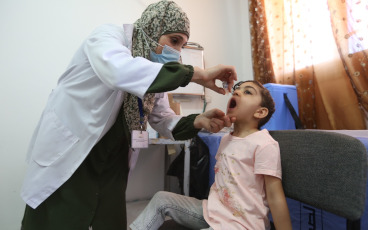Strategic Group of Experts on Immunization concerned by lack of access to children
Recommends vaccination strategies to reduce risk
11 November 2013 – Acknowledging the continuing progress being achieved against polio, the Strategic Group of Experts on Immunization (SAGE) have also voiced concern at the potential impact of insecurity as well as the lack of access to children in large parts of northwest Pakistan and north-eastern Nigeria.
Case numbers in the three endemic countries (Afghanistan, Nigeria and Pakistan) are down by 40% compared to this time last year, and the world passed a year without a single case of wild poliovirus type 3 on 10 November. However, at a meeting in Geneva last week, members of the SAGE stated that insecurity and inaccessibility now represent the greatest risk to the success of polio eradication efforts, echoing the Independent Monitoring Board’s most recent report.
Insofar as technical and programmatic planning can contribute to improving immunity while the political risks are addressed, SAGE provided several recommendations. These included that all polio endemic countries should establish a plan for IPV introduction by mid-2014 and other high-risk countries by end-2014.
Other discussion focused on proposed plans for introducing inactive polio vaccine globally, vaccine supply chain systems and the Middle East outbreak. More












